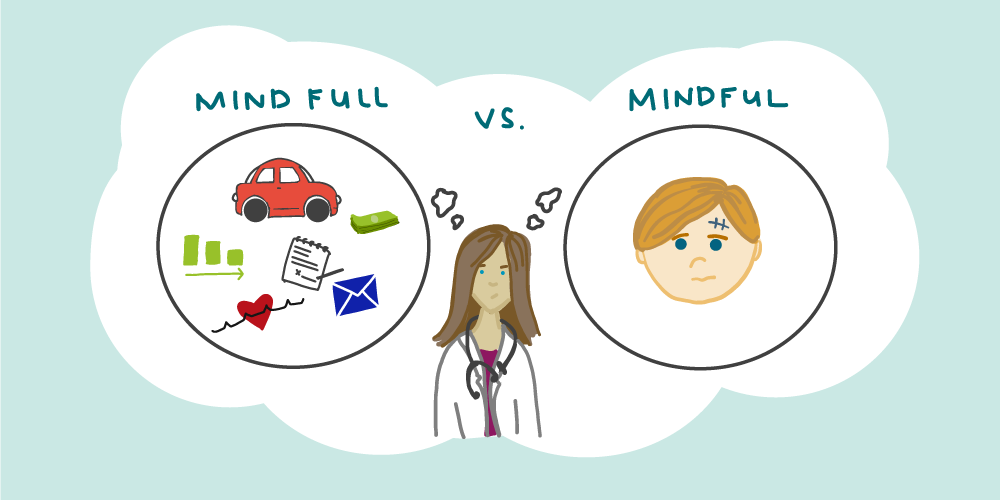rior to medical school and residency, I had plenty of time to recharge and reflect with long days of solitude in New Mexico’s Jemez and Magdalena mountains. This quiet isolation gave me the ability to take deep breaths, check in with my mind and body, and to find gratitude. As time progressed while in medical school and residency, I lost the time to reflect in a meaningful way. Without it, I found myself constantly focusing on negative feedback, which tended to revolve around what I could “work on” and my “deficits.”
If I got positive feedback somewhere in those years, I don’t remember it because I never reflected on the positive. As the hours and demands increased, I perseverated over argumentative interactions, my own maladapted reactions, and the bad outcomes of some patients. Writing notes and calling consults became my day. A repetitive beast with no end in sight... and without the positive reflection that had benefited me previously. Fellowship increased the demands of QI projects, research projects, parent evaluations, endless phone consults and pushback. I was quick to react to negative situations and, at the end of the day, I felt unfulfilled.
I stumbled across an email from the Health and Wellness Center about a Mindfulness-Based Stress Reduction course. The course description reminded me of the days of mindful hikes and hours spent on rocks just being. I decided to take the course to find ways to integrate new methods into my life as a fellow. I wanted to find happiness in my daily work, fulfilment in my interactions, and calm during the chaos of my shifts.
Mindfulness techniques that worked for me
The Mindfulness Playlist
Try it for yourself. To begin, here are three mindfulness practices:
Take a class. University of Utah Health offers ongoing in-person mindfulness training.
Focusing my attention
The class taught me that small changes, easily and seamlessly integrated into a busy schedule, can make a big difference. Though I was not initially great at the meditation portion of the course, I started focusing my attention on mindful movements for 15 minutes per day. I felt more in tune with my body and mind during those short periods.
Badging in = awareness of breath
I then tried using awareness of breath that I incorporated into my shifts by taking three long, deep breaths every time I used my badge-reader and then observing my feelings at that moment.
Set the intention and start small
My next step was to focus on being present with patients and parents by setting my intention prior to shifts, usually verbally on the car ride to the hospital. I initially started by focusing on one encounter per shift and have now expanded to trying to use this with every encounter. I now feel as though I am connecting with people and feel that I am providing more personal care. I leave shifts in a better mood and feel less stressed.
Keep track of the good
My most recent activity has been to write in a gratitude journal. While I am not able to do this daily, I enjoy reflecting on the positive events of most of my days. It is a great opportunity to see all the great things that happen every day. This journal also keeps me from ruminating on the negative events or encounters.
While I continue to work on my meditation, I feel as though I have regained some of the optimism and fulfillment I had before I embarked on the journey of medical school, residency and fellowship. I am forever a “project in-the-works,” but have come a long way in the past year personally. I would invite those interested on the wonderful journey of mindfulness.
*Originally published July 19, 2019
Sydney Ryan
We’re all managing unprecedented stress and fear. What is “normal” right now? How do I cope? Social worker Jean Whitlock describes how our body protects us and offers some strategies to help.
Family Medicine physician and co-director of the Resiliency Center Amy Locke outlines five ways U of U Health’s strategic commitment to well-being is paying off during COVID-19.
Surgeon Rob Glasgow reflects on the national conversation around physician burnout and calls for a connection to purpose. His advice: never stop asking what brings meaning to your life and your profession.
